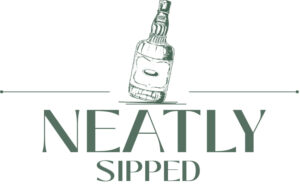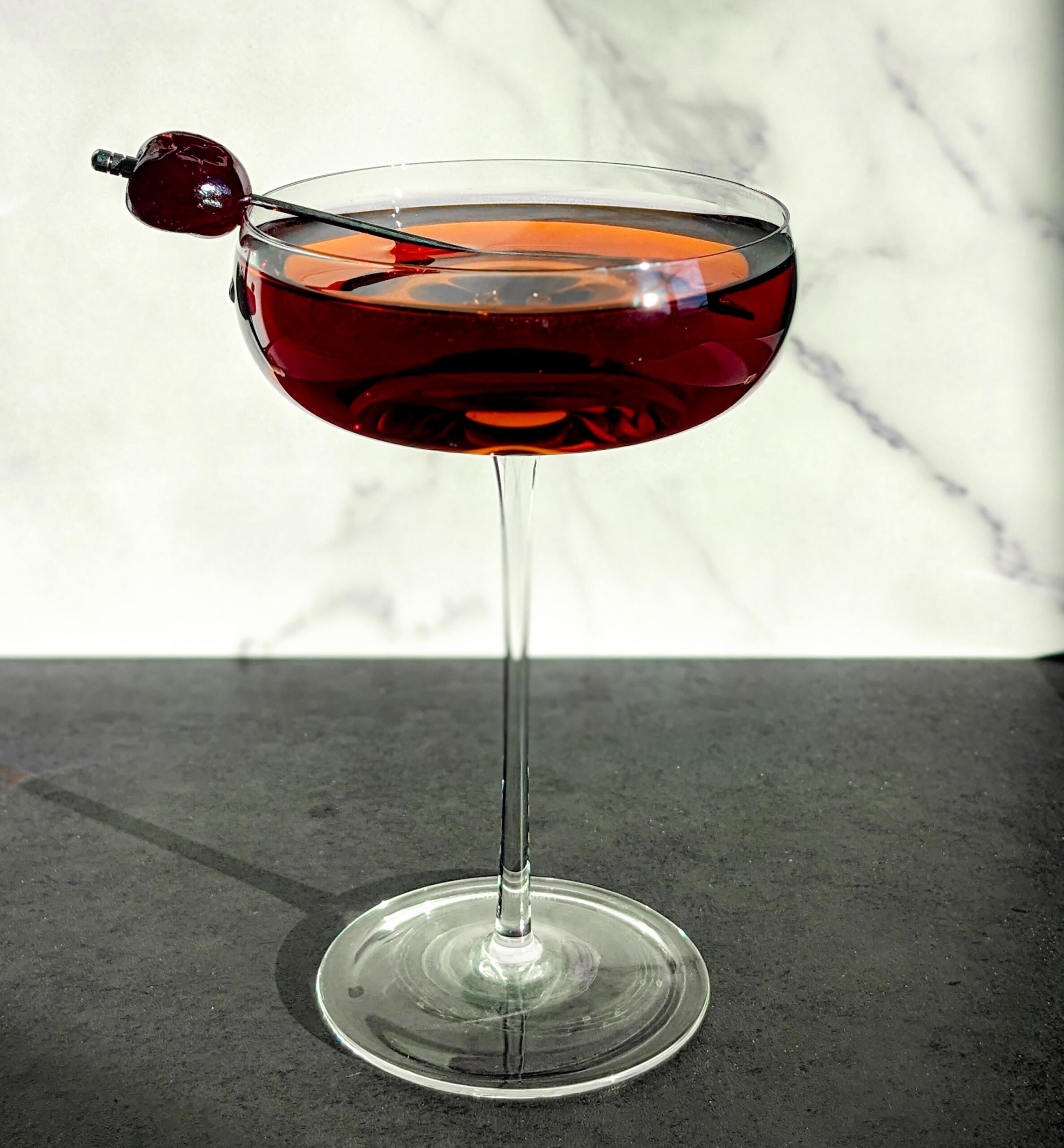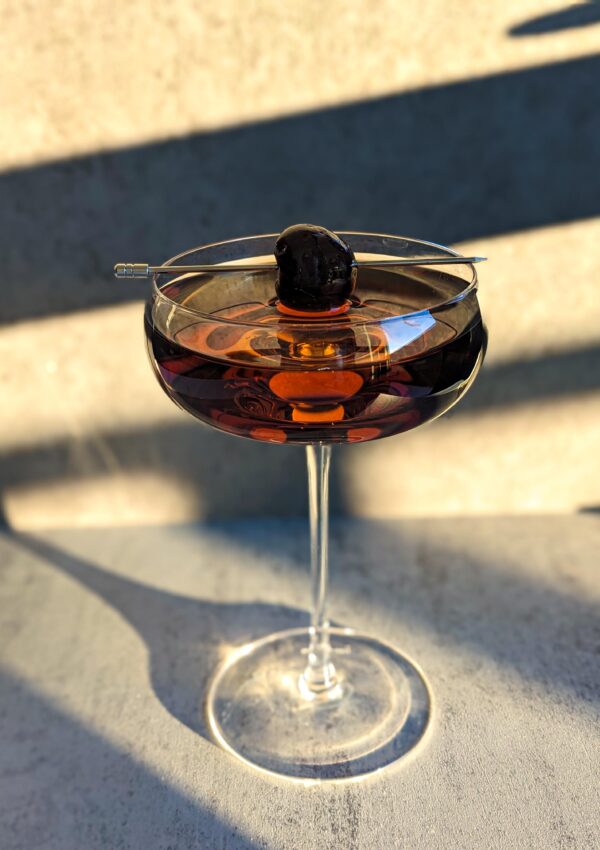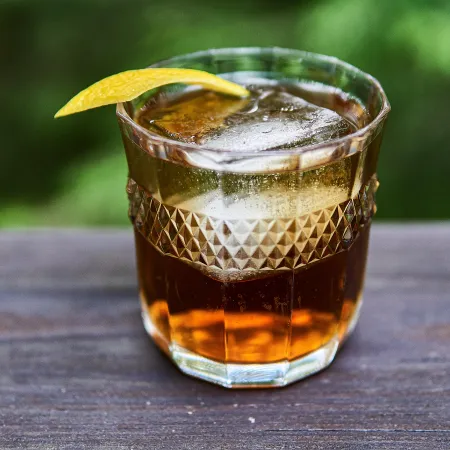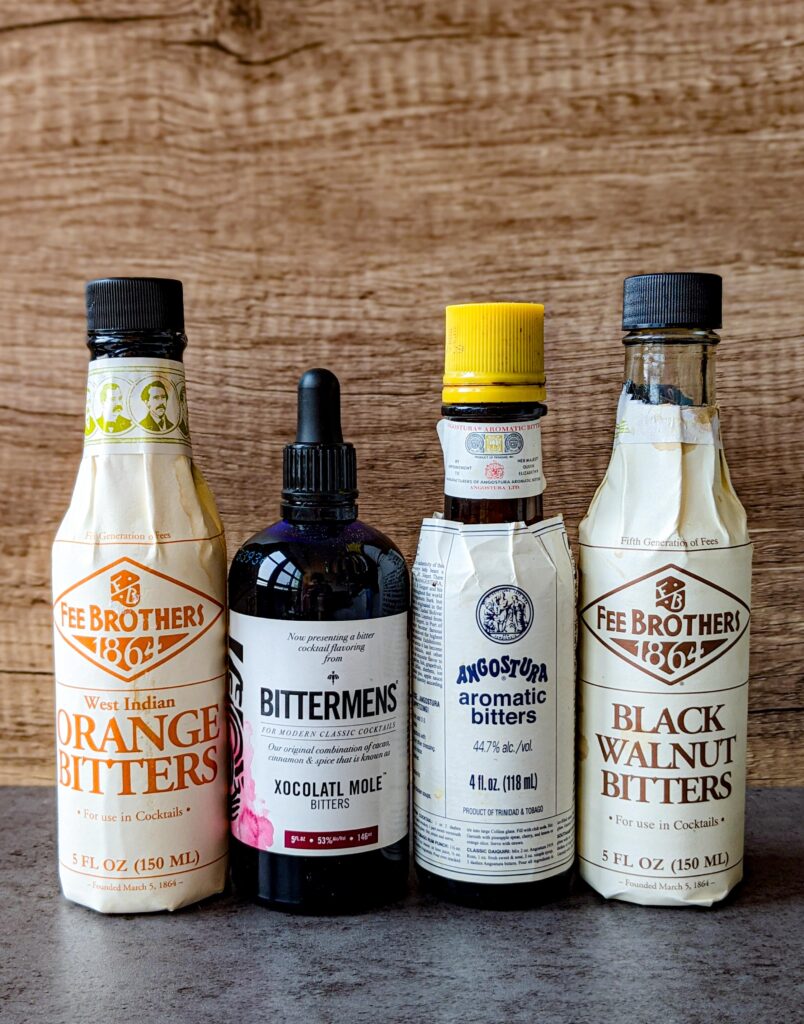
In 1806, a reader submitted a letter to a local newspaper in New York asking for clarification on a new word: “Cocktail.” The editor defined a cocktail as a “…potent concoction of spirits, bitters, water, and sugar.” This moment codified cocktails as a separate and unique beverage from the popular cobblers or punches of the time, essentially launching the entire cocktail industry. But what exactly made cocktails different from mixed drinks? Bitters.
Cocktail bitters are so often the unsung heroes of cocktails, especially whisky ones. These tiny tinctures are added to cocktails in small dashes, making them easy to overlook or ignore. However, cocktail bitters can make or break a cocktail by bringing a pop of flavor or some much needed balance to the ingredients. Yet, like the whiskey world itself, the cocktail bitters industry has been constantly growing, expanding, and overflowing with options. So, let’s get right down to the bitter truth with everything you need to know about cocktail bitters.
What are Cocktail Bitters?
Essentially, cocktail bitters are concentrated infusions of different ingredients that are often distilled in a base liquor. Depending on the product, you may find flowers, roots, spices, berries, barks, herbs, or other botanicals that are all meant to create a unique final flavor. These intense herbal properties are why so many of the established cocktail bitters began life as medicinal remedies.
Since cocktail bitters are so concentrated, they’re sold in small containers and measured in “dashes.” A dash is the equivalent of one drop of liquid, which is why bitters’ bottles often have a small, narrow pour top or are sold in dropper bottles.
The Main Types of Cocktail Bitters
At this point, you can find a cocktail bitter for just about any flavor imaginable. The huge array of flavors and options is certainly fun, but can also be overwhelming. To help narrow down the field, here are the main types of cocktail bitters to use for whiskey cocktails.
Angostura Aromatic Bitters
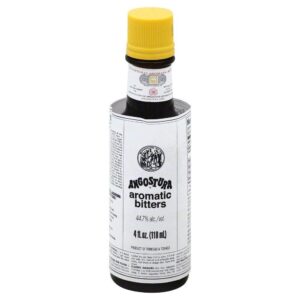
The holy grail of cocktail bitters is none other than Angostura Aromatic Bitters. In fact, when bartenders or recipes only reference, “bitters” – they’re talking about Angostura. Classic whiskey cocktails like the Old Fashioned or Manhattan are all going to rely on Angostura Aromatic Bitters. These bitters were created by Dr. Johann Siegert in 1824 as a medical mixture for upset stomachs. In 1875, Dr. Siegert’s three sons relocated to Trinidad to set up shop and never left. Today the company is still located in Trinidad and produces the exact same recipe.
Peychaud’s Bitters
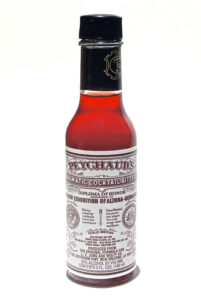
If you have a soft spot for New Orleans’ cocktails, then Peychaud’s Bitters is the one for you. In 1832, Antoine Amédée Peychaud was working in his apothecary in the French Quarter of New Orleans. In his down time, Peychaud created his signature bitters and a drink to go with them – The Sazerac. Fittingly enough, Peychaud’s Bitters are owned today by the Sazerac Company, which also produces Sazerac Rye Whiskey. These bitters have a stronger anise or licorice flavor that will likely remind you of absinthe. This detail makes them a crucial part of cocktails like the Sazerac and the A La Louisiane or a fun twist on absinthe forward drinks like the Waldorf or the Improved Whiskey Cocktail.
Orange Bitters
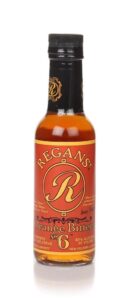
In addition to Angostura and Peychaud’s, you’ll find Orange Bitters behind almost every bar. Refreshing, citrusy, and light Orange Bitters do a lot of heavy lifting in cocktails of all shapes and spirits. In decadent whiskey cocktails like the Black Manhattan or Revolver, these bitters bring some needed balance. While in citrus and botanical-forward drinks such as the Greenpoint or Bourbon & Blood, they amplify the beautiful citrus. Just about everyone who makes bitters these days, offers up their version of Orange Bitters. However, we’d recommend Regan’s Orange Bitters. This version of Orange Bitters is more nuanced with cardamom and herb undertones that feel a bit more sophisticated in a cocktail.
Flavored Bitters
Categorically, flavored bitters have had the largest expansion in the last few decades. At this point, just about any flavor you can dream up has a corresponding bitter. Although this list is certainly not comprehensive, these are some of our favorite flavored cocktail bitters for whiskey drinkers.
- Black Walnut Bitters
With a robust toasted, nutty taste, Fee Brothers Black Walnut Bitters evoke a lot of winter holiday vibes. Toward the end of the year, they’re a great swap into the Old Fashioned or Boulevardier. - Chocolate Bitters
Chocolate and whiskey are a match made in heaven. The addition of Chocolate Bitters creates a decadent twist on cocktails like the Manhattan or Black Manhattan. Woodford Reserve’s Bourbon Barrel Aged Chocolate Bitters is our top choice, but if you want a bit of kick in your chocolate, you can also try out Fee Brothers Aztec Chocolate Bitters. - Cherry Bitters
Cherry is a taste you can already find in tons of whiskies, especially bourbons and ryes. If that’s a taste you love to highlight, then Cherry Bitters are a solid option. They’re a fun fruity part of a Whiskey Smash, can amplify the taste of cocktails with Maraschino Cherry Liqueur like the Jockey Club or Kentucky Flyer, or bring a unique balance to Scotch cocktails like the Rob Roy. Fee Brothers Cherry Bitters provide more of a sweet, straightforward cherry taste, while Woodford Reserve Spiced Cherry Bitters are more complex. - Mole Bitters
Mole Bitters are anything but subtle, so a little goes a long, long way. These bitters boast a ton of ingredients, but cinnamon, chocolate, and spice really shine through. Bittermens Xocolatl Mole Bitters are a quintessential part of the Jane Russell or really shake up an Old Fashioned. - Grapefruit Bitters
Throughout spring and summer, Grapefruit Bitters can be pretty clutch. A dash or two in the already fruity Algonquin brightens things up or kicks up the grapefruit profile in drinks like the Brown Derby. The Fee Brothers Grapefruit Bitters is a great pick here.
Which Bitters Should You Buy?
Well, that all really depends. If you’re hesitant to spend a ton of money or time on cocktail bitters, then stick with Angostura. That bottle of bitters goes a long way in the whiskey cocktail world and can be used as a substitute for other bitters in a pinch. If you want to up your game a bit, then try getting the trifecta of Angostura, Peychaud’s, and Orange bitters. This combination massively expands your options without breaking the bank. However, if you’re already feeling like a cocktail pro and want to impress your friends, then invest in a few of the flavored bitters as well. These options are certainly more niche, but they make all the difference in a cocktail – especially if it’s a flavor you love.
How to Store Cocktail Bitters
Shockingly, this is a subject of some pretty serious debate. Since you’ll only be using up bitters one dash at a time, they’ll probably be hanging around your bar cart for quite some time. While bitters technically don’t go bad, they can lose their flavor over time once they’ve been opened. To help slow down the oxidation of your bitters (the process that makes them lose their delicious taste), pop them in the fridge for storage. For more control over the “dash” of bitters, you can also store the ingredients in dropper bottles. However, make sure that you’re storing in amber dropper bottles, rather than clear ones. The clear bottles let in plenty of light, which speeds up oxidation aka makes your bitters lose their flavor faster.
And now that we’ve reached the bitter end, it turns out that the truth about bitters isn’t all that bitter after all. These bar ingredients are small, yet mighty and can add quite a lot to your cocktails. Sure, you could go overboard and buy every bitter under the Sun, but you don’t need to. Choose a few that peak your interest, get to mixing, and discover how a dash of bitters can add a huge splash to your cocktails.
This website uses affiliate links which may earn commission for purchases made at no additional cost to you.
